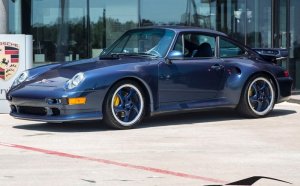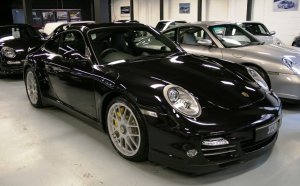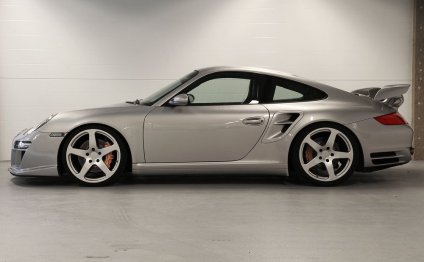
2008 Porsche 997 Turbo
Ever since we dumped the clutch at 4000 rpm in newest, 997-based, 480-hp 911 Turbo, we have been keeping the Tiptronic (Porsche-speak for automatic) version in the rear of our head. Which is because Porsche's claimed acceleration times for slushbox Turbo are 0.3-second faster to 60 miles per hour. In line with the manual we tested, the automatic should always be capable of hitting 60 mph in a sensational 3.1 seconds and pass the one-fourth in 11.4. Skeptical the five-speed automated variation might out-perform the six-speed handbook's vicious, four-wheel burnout that causes a flabbergasting 1.1-second catapult to 30 mph and 3.4-second blast to 60 miles per hour, we headed into track.
Floor it.
Despite having a conventional, torque-converter automatic, it's far from simple to extract the ridiculous figures that Turbo is capable of. First, keep in mind that the newest Turbo has actually an overboost mode—it ups boost regarding the 3.6-liter flat-six by 2.9 psi, increasing torque from 460 pound-feet to 505 for 10 moments once the dash-mounted "Sport" button is ticked together with throttle is pinned—so, to get the best launch, the brake torquing must happen together with your correct base completely on floor.
With feet firmly planted on both pedals while the car just starting to creep ahead from the wave of torque, ensure that the up-arrow illuminates into the boost-display window-the indicator that overboost mode is activated-before releasing the brake. If you've gotten it appropriate, the challenging component is finished and all sorts of 505 pound-feet of torque are unleashed, offering the driver an impressively harsh shove to the seat. During our screening, but getting repeatable launches within overboost mode proved difficult and those extra few pounds of boost sat out about 50 % the works for no evident reason.
Quicker in some ways, yet not all.
Going in, it was an uphill struggle for the automated. Our test car weighed 3584 pounds, a 70-pound punishment compared with the manual. Furthermore, the automatic releases with very little wheelspin, unlike the handbook, and it consequently does not log off the line as swiftly. We struck 30 mph in 1.3 seconds, which can be 0.2-second from the manual's speed. But that early shortage is overcome because of the Tiptronic's smooth and fast wide-open-throttle upshifts which maintain the turbos spooled up, unlike what the results are whenever you raise to move in handbook. By 60 mph, that lost time consists as well as the Tiptronic suits the handbook automobile's 3.4-second blast. From there, it continues to gain surface and sides out of the handbook within the quarter-mile by a scant 0.1 second—11.6 moments at 122 miles per hour versus 11.7 at 121—and it stays forward other way, hitting 160 miles per hour in 22.1 seconds versus 23.8. In case you're wondering, that quarter-mile time surpasses the fastest 505-hp Corvette Z06 we've tested.
Nevertheless perhaps not the enthusiast's option.
Performs this mean we would pick a computerized over a handbook in the Turbo? Until you're about to invest a lot of time at a drag strip, where in fact the all-wheel-drive system may not endure frequent four-wheel burnouts, the solution is not any. While during the track the five-speed Tiptronic changes effortlessly and rapidly, around town it could come to be bothersome. First off, Porsche automatics like to start in second equipment, which appears unusual via these types of a performance-oriented business. This means if you dig deep enough to the throttle from a standstill, you get a clunky 2-1 downshift. And the upshifts are often lower than crisp, more of a slurring between gears. Additionally, we would like correct change paddles—left for downshifts, suitable for upshifts—mounted behind the controls, instead of the Turbo's toggle switches regarding the front for the wheel that control changes both in instructions. And, needless to say, the response time is visibly slower than computerized guides like Audi's rapid-shifting dual-clutch DSG. Not assisting the Tiptronic's case is the $3420 choice price, but possibly during the Turbo's starting cost of $123, 695, some grand is not essential.
Apart from its missile-like speed, the 911 Turbo is a very attractive and skilled sports-car that may comfortably be driven each day of the year. Although the wide, grippy tires that help it to corner neutrally at 0.97 g on skidpad (same as the handbook), preventing over and over repeatedly from 70 mph in less than 150 legs do create most roadway sound. As well as the Turbo's steering actually as sharp as less heavy, rear-drive 911s nor is its fatigue note almost since exhilarating given that 8400-rpm shout associated with the wickedest obviously aspirated 911s, the GT3 and GT3 RS. However the debate is over. It's the ultimate for ripping down the straights.
INTERESTING VIDEO
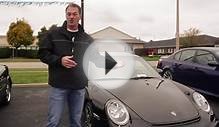
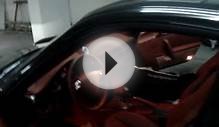
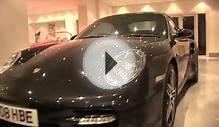
Share this Post
Related posts
1997 Porsche Turbo s for Sale
Ultra rare 1997 Porsche 993 Turbo S! - Rare Cars for Sale BlogRare
Read MorePorsche 997 Turbo s for sale
Porsche 997 Turbo S :: Porsche 911 :: Porsche for Sale :: JZM Porsche
Read More
